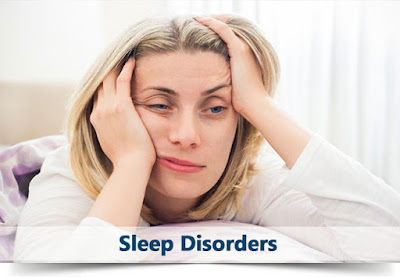Frequent urination or urinary frequency, as it is more
commonly known is a condition in which a child experiences the need to urinate
often. In normal circumstances children tend to urinate more than adults as
they have smaller bladders that process fluids faster than adults. Therefore it
is normal for them to urinate more but if your child is visiting the toilet at
least 10 - 30 times in a day then he/she is probably displaying symptoms of
frequent urination. Bed-wetting and frequent urination at night also points
towards this condition.
Causes of frequent
urination in children
If a child suffers from this condition then it can be a sign
of abnormality in the urine of the child, infection by bacteria, or presence of
blood in urine. While often the cause may be behavioural, there can be more
serious underlying causes which need to be treated immediately. It is always
advisable to consult a paediatrician or a urologist who may prescribe a
urinalysis to identify the causes for the condition.
Stress and Tension: More often than not urinary frequency in children can be a result of emotional upheaval. If the child is
feeling pressurised, then he or she may exhibit this condition within a day or
two of the trigger situation. It can also result from a change in the child's
routine which can cause stress. In such a scenario, it is important that
parents are patient and try to understand what is troubling the child.
Behavioural Causes: Frequent urination can also be a
result of some behavioural reasons. Many children exhibit an unnecessary intake
of fluids which results in urinary frequency. If your child throws a tantrum on
being asked to restrict fluid intake and shows a reduction in trips to the
bathroom, then this could be a cause. In boys of the age group 3 - 4 years,
there is a tendency to be fascinated by urination and a need to stop and
urinate frequently. This is a behavioural quirk and the habit will be
discontinued in 6 months or so. Many children also learn a smart way of dodging
classes by getting into a cycle of going to the restroom and drinking water
immediately after, so that in an hour or so another trip can be made to the
restroom. Most teachers will grasp the situation quickly and put an end to the
habit.
Diabetes Mellitus: The most common fear that most
parents have when their children display symptoms of frequent urination is that
the child is suffering from juvenile diabetes. Unlike in other conditions that
can result in the condition, if your child is suffering from diabetes, then
he/she would also suffer from conditions like polyuria, polyphagia (eating more
than usual), polydipsia (drinking more fluids than usual), and weight loss. The
child will be tested for sugar levels to check for diabetes.
Diabetes Insipidus: Diabetes Insipidus is not a very
common cause of frequent urination. If your child suffers from this form of
diabetes, then he/she probably suffers from a deficiency of anti diuretic
hormone (ADH), which results in the dysfunction of kidneys and loss of their
ability to conserve water, extra production of urine, and excessive thirst.
Pollakiuria: Also known as Extraordinary Daytime
Urinary Frequency Syndrome, pollakiuria is common in children in the age group
of 3 - 8 years. There are no other symptoms of this disorder. Sometimes related
to stress, if your child suffers from this condition, then he/she is probably
experiencing frequent urination during daytime with production of small amounts
of urine on each occasion. There is no treatment and the condition recedes in a
few months.
Urinary Tract
Infection: A very
common cause, urinary tract infections are a reason for frequent urination in women as well. If your child is suffering from UTI, then he/she would not only
experience urinary frequency but also complain of urgency (the need to urinate
quickly), dysuria (burning and pain during urination), cloudy or bloody urine,
fever, back pain, abdominal pain, and nausea.
Voiding Dysfunction: Frequent urination in kids is also
noticed due to this condition wherein, some children do not empty their bladder
completely because they are afraid that they may miss something or they want to
rush back to play. They may urinate just enough to relieve the pressure on the
bladder but not completely. If this becomes regular then the sphincter muscle
that helps you with bladder control will become overactive making it harder to
urinate completely. If you think that your child is exhibiting signs of voiding
dysfunction then put him on a schedule so that he goes to the bathroom every 2
- 4 hrs.
Vulvovaginitis: If you have a daughter then
vulvovaginitis or the inflammation around the vaginal area can be a cause of
frequent urination. The irritation of skin around the vaginal area causes it to
show symptoms similar to symptoms of UTI. This irritation of skin can be due to
improper wiping of the area or poor toilet hygiene, taking bubble baths,
contact with irritants, etc.
Treatment of frequent
urination in children
The treatment, very obviously, depends upon the cause of the
condition. If the reason for frequent urination is a urinary tract infection,
then your child will need a course of antibiotics, unless the infection clears
up. Insulin therapy works as a treatment if your child is experiencing urinary
frequency due to the onset of diabetes mellitus. In case of vulvovaginitis, the
doctor may prescribe topical anti-fungal or anti-bacterial creams. If your child
is exhibiting symptoms of the condition, then monitor his/her liquid intake.
Ensure that your child is maintaining proper toilet hygiene. Do visit a
specialist or your paediatrician for proper and timely diagnosis. If the cause
is behavioural, talk to your child and explain things to him/her properly, and
ensure that you give it some time.
Frequent urination is a symptom of many other serious
underlying diseases, and it is important to diagnose the disease to ensure that
your child does not suffer.












